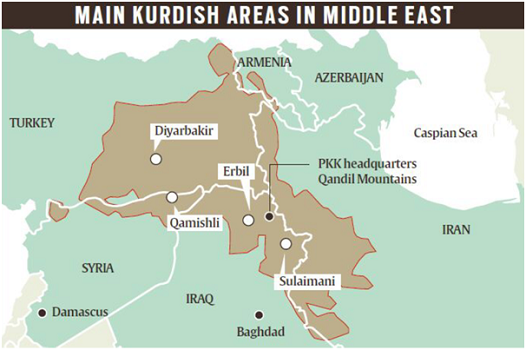Prelim Snippets 16-10-2019
1.Booker Prize
Why in News?
- The Testaments by Margaret Atwood and Girl, Woman, Other byBernardine Evaristo have jointly won this yearʼs Booker prize.
- Although the rules do not allow for the award to be either split orwithheld, the jury was unanimous after several rounds that this yearʼsaward must be shared.
About:
- The Man Booker Prize was established in 1969 to promote the finest infiction by rewarding the best novel of the year written in English.
- The Man Booker Prize awards any novel originally written in Englishand published in the UK and Ireland in the year of the prize, regardlessof the nationality of their author.
- The novel must be an original work in English (not a translation)
- It must be published by a registered UK or Irish imprint; self-publishednovels are not eligible.The winner receives £50,000 as well as the £2,500 awarded to each of the shortlisted authors. In this case, thanks to the award being shared,the prize money would be split between the two winners.
2.Microbial Fuel Cells
Why in News?
- A plant has taken the botanical world’s first selfie, according to theZoological Society of London (ZSL).
About:
- Microbial fuel cells are devices that use bacteria as the catalysts tooxidise organic and inorganic matter and generate current.
- A research paper from the Massachusetts Institute of Technologyexplained that electrons produced by the bacteria are transferred to thenegative terminal and flow to the positive terminal.Plants naturally deposit biomatter as they grow, which in turn feeds thenatural bacteria present in the soil, creating energy that can beharnessed by fuel cells and used to power a wide range of vitalconservation tools remotely, including sensors, monitoring platformsand camera traps.
3.Kurds
Why in News?
- Kurdish fighters in northern Syria have served as a crucial U.S. ally inthe fight against the Islamic State. But U.S. troops stepped aside lastweek as Turkey launched an offensive against the U.S.-backed Kurdishforces. Kurdish forces have described the U.S. departure as “a stab inthe back.”
About Kurds:

- The Kurds are the worldʼs largest stateless ethnic group.
- There are an estimated 25 million to 35 million of them.
- They live in the highlands of southern and eastern Turkey, northernIraq, the northeastern Syria, northwestern Iran, and parts of southArmenia, and are a minority in each of these countries.
- Small communities live in Georgia, Kazakhstan, Lebanon, and easternIran as well.
- Kurdish nationalists claim a history going back 2,500 years, but theybecame identifiable as a distinct community only in the 7th century,when most tribes in the area adopted Islam.
- The majority among the Kurdish people today are Sunni Muslim, butthere are adherents of other faiths too, including Sufism and othermystical practices.
- They speak a language that is related to Persian and Pashto, althoughlocal dialects differ.
- Kurmanji, which most Kurds in Turkey speak, uses the Latin script; theother widely spoken Kurdish dialect, Sorani, is written in the Arabicscript.
4.“L2Pro India”
Why in News?
- Department for Promotion of Industry and Internal Trade (DPIIT) has launched the website and mobile application L2Pro India [Learn to Protect, Secure and Maximize Your Innovation] on Intellectual Property Rights (IPRs).
About L2Pro India:
- The website and app has been developed by Cell for IPR Promotion and Management (CIPAM)-DPIIT in collaboration with Qualcomm and National Law University (NLU), Delhi. The website and app will be very useful to the start-up community which holds great promise for India and its economy.
- The app has been launched in the scenario where start-ups are more tuned into investment and risk taking but lack legal knowledge.
- Since we are on the threshold of the fourth industrial revolution the interface between technology and law is growing, it is very essential that a specialised website and app is available to help start-ups with the IP process.






